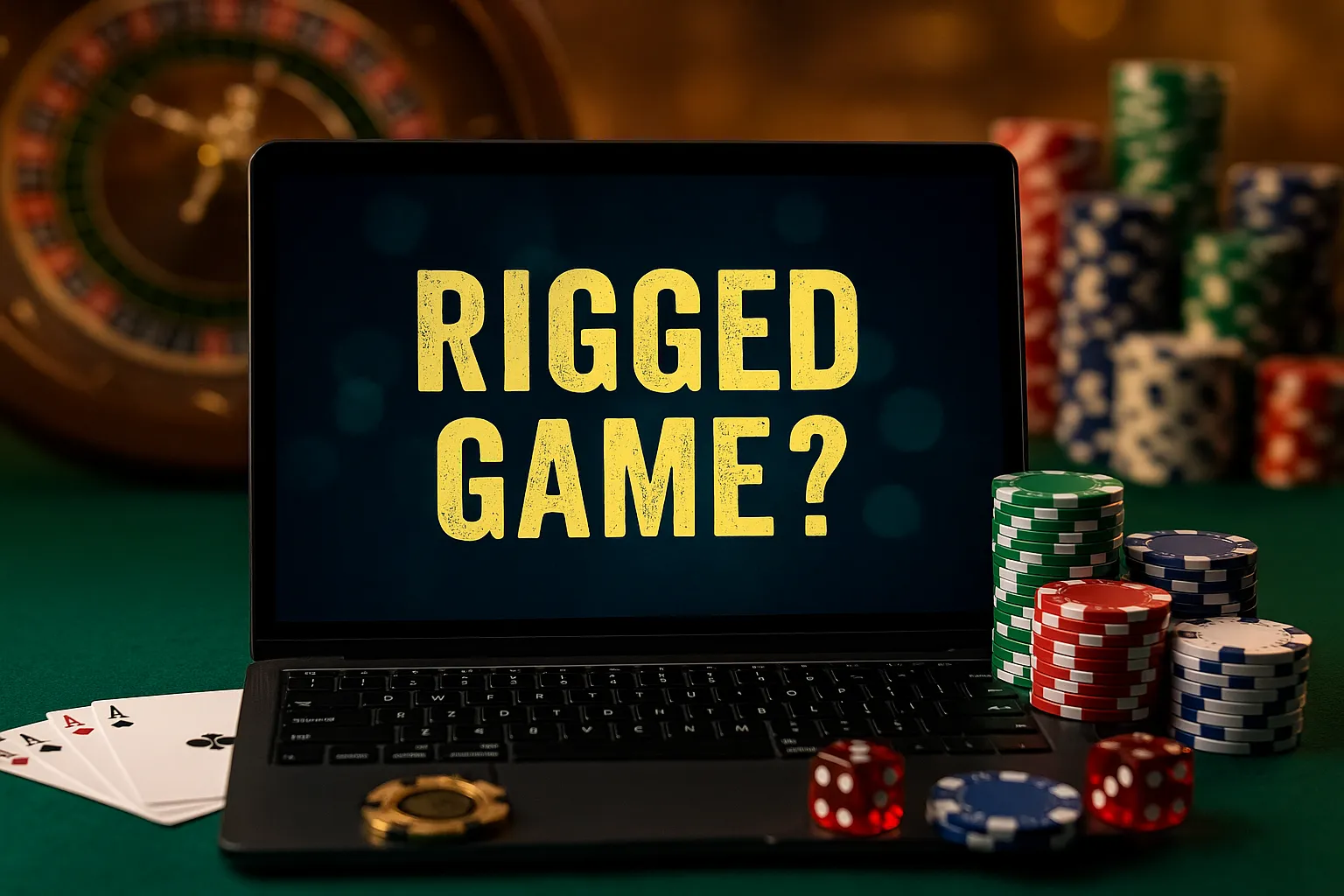Playing online casino games should be a thrill—a test of luck and strategy. But when the odds are artificially inflated, that thrill can evaporate into frustration and, worse, financial loss. Over the years, I’ve tested dozens of platforms, chatted with industry insiders, and dug through audit reports to develop a keen eye for fair play. In this guide, I’ll walk you through the subtle (and not-so-subtle) signals that an online casino game might be rigged, sharing practical tips, real-world examples, and investigative techniques that will help you protect your bankroll and your peace of mind.
The Allure of “Too Good to Be True” Offers
At first glance, extravagant bonuses and sky-high payout rates feel irresistible. A 500% welcome bonus, daily free spins with seemingly unlimited value, or advertised Return-to-Player (RTP) rates of 99.9% can be tempting—especially if you’ve had middling luck elsewhere. However, these promises often serve as siren songs designed to lure in unsuspecting players before revealing hidden wagering requirements, withdrawal caps, or skewed game odds.
Take “Lucky Spin Palace,” an unregulated site I tested last year. Their slot games claimed an RTP of 98%, and they dangled a “no-wagering” free spin offer. After playing a few sessions, I found the free spin wins locked behind a 50× playthrough requirement—and as expected, the slots entered long “cold streaks” that made the requirement nearly impossible to meet. That experience underscored a critical principle: never take promotional claims at face value.
Recognizing Suspicious Game Variance
Every casino game has natural variance—periods of wins and losses fluctuate. Yet, with rigged games, you’ll often witness patterns that defy statistical probability. Here are a few red flags I’ve encountered:
Abnormally Long Cold Runs
On legitimate slots, you might see 20–30 spins without a sizable win. But if you endure 100 consecutive spins with no payouts beyond minimal symbol matches, the game’s math may have been tampered with.
Frequent Micro-Payouts
Rigged games sometimes distribute tiny wins (just above your bet amount) to keep you engaged, without ever delivering the promised jackpots. You’ll feel a “winning buzz,” but your net result remains a slow bleed.
Abrupt Jackpot Triggers
Conversely, some unscrupulous operators trigger a big win disproportionately early—often on first or second play—only to blacklist your account when you try to withdraw. I witnessed this firsthand: a friend won a life-changing sum on an unlicensed poker room after his first hand, then saw his withdrawal request denied due to an “unexpected error.”
Verifying Game Fairness Through RNG and Audits
Behind every trustworthy online casino lies a certified Random Number Generator (RNG), ensuring outcomes are unpredictable and fair. Independent testing agencies like eCOGRA, iTech Labs, and GLI regularly audit these systems—and you should do your homework to confirm their involvement.
Checking for Certification Seals
Before depositing, look for audit seals on the casino’s homepage or in the game provider’s footer. Clicking the seal should redirect you to the auditor’s site with a validity check. If the link is broken or missing, treat it as a red flag.
Analyzing Published RTP Reports
Many reputable casinos publish monthly or quarterly RTP summaries. Unexpected fluctuations—say, a slot showing 96.5% one month and plunging to 90% the next—warrant further scrutiny. In genuine operations, RTPs remain relatively stable over time.
Examining Licensing and Regulatory Oversight
Even the most polished interface can mask illegal activity. A genuine license from a respected authority signals a commitment to fair play.
Evaluating License Legitimacy
Reputable regulators include the UK Gambling Commission (UKGC), Malta Gaming Authority (MGA), Gibraltar Regulatory Authority, and Isle of Man Gambling Supervision Commission. While some operators skirt more rigorous bodies by licensing in Curacao, you’ll need to weigh convenience against player protection.
When searching for “UK casinos not on gamstop,” you might stumble upon offshore platforms catering to self-excluded UK players. While they may offer unfiltered access, they also operate outside UKGC oversight—steering you towards site terms and dispute mechanisms that lack the consumer safeguards you’d expect from licensed British operators. Always confirm the license number with the issuing body’s online register before you risk real money.
Scrutinizing Complaint and Payout Statistics
Regulators like the UKGC publish transparency reports showing complaints rates and payout delays. A high complaint ratio often correlates with unfair practices or slow withdrawals. If you spot an operator with a spike in grievances, that’s your cue to steer clear.
Monitoring User Feedback and Community Intelligence
No audit or license can substitute for peer insights. Forums, social media groups, and specialized watchdog sites often surface firsthand accounts of unfair treatment.
Timing Your Deep Dive
When a new platform launches—or a fresh game provider lands at an existing site—monitor community discussions closely for the first 30 days. That initial window is when teething issues and questionable behaviours emerge.
Balancing Outliers vs. Trends
One disgruntled player may be unlucky or misinformed. But if dozens share a consistent story—frozen accounts, clawed-back bonuses, or unexplained losses—trust the trend and refocus your action on more reputable options.
Testing Games Yourself: Low-Stakes Audits
If you suspect a game might be dodgy, perform your own mini audit:
-
Start Small: Deposit the minimum and place a series of standardized bets—ten spins at the base bet, ten at double, ten at maximum.
-
Record Results: Track wins, losses, and payout sizes in a simple spreadsheet.
-
Calculate Effective RTP: Compare your actual win percentage to the advertised rate. Variance naturally skews short sessions, but a massive gap (e.g., 80% actual vs. 96% advertised) is a strong indicator of foul play.
Real-World Example: Uncovering a Rigged Roulette Variant
I once trialed a “VIP Roulette” table that promised a higher payout on single numbers. Intrigued, I wagered €1 on 36 consecutive spins, expecting an RTP bump from 97.3% to roughly 98.5%. Instead, I lost 35 spins in a row—an event with odds of 1 in 10^55 on a fair wheel. That absurd outcome led me to file a complaint: the operator’s response admitted a “software glitch” and refunded my stake, then quietly removed the game from their lobby.
Protecting Yourself: Best Practices
Armed with knowledge, you can minimize risk:
-
Prioritize Reputable Game Providers: Stick with titles from established developers like NetEnt, Microgaming, Evolution Gaming, and Playtech.
-
Demand Transparency on RTP: If a site won’t share historic performance data, consider that a deal-breaker.
-
Use Licensed Payment Methods: Credit cards and e-wallets from regulated providers offer chargeback options.
-
Limit Your Exposure: Set deposit and loss caps via independent budgeting tools.
-
Stay Educated: Regularly review industry news and audit announcements to spot emerging risks.
Conclusion: Betting Smart in a Complex Landscape
Detecting rigged online casino games is part art, part science. It requires attention to patterns, a willingness to research audits and licenses, and the discipline to walk away when something feels off. By combining community intelligence, your own low-stakes tests, and rigorous license checks, you can enjoy online gambling with confidence—knowing that you’ve done everything possible to ensure a level playing field.










